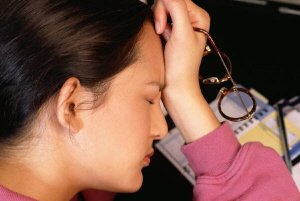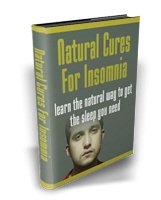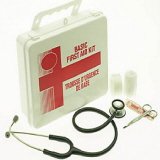|
Insomnia: Some tips that help with this sleep disorder
To begin with, it’s important to realise that everyone has different sleeping patterns and this information may not apply to your particular problem. For example, some people need ten hours of sleep just to feel refreshed, whilst others function quite normally on four or five hours. The definition of having a sleep problem therefore will depend on your individual needs and situation. Simply put, insomnia is a difficulty in falling asleep or obtaining enough sleep to function. This may manifest as an inability to fall asleep; a tendency to wake frequently; or waking too early in the morning. This can lead to tiredness, frustration and difficulty functioning normally.
Treatment for Insomnia Many insomniacs rely on sleeping tablets and other sedatives to try to get some rest. Others use herbs such as valerian, chamomile, lavender, hops, and/or passion-flower. The psychoactive plant cannabis sativa commonly known as marijuana has also been reputed to induce drowsiness in its user, however, use of cannabis sativa for treatment of this problem is unlawful in most jurisdictions. Some traditional remedies have included drinking warm milk before bedtime, taking a warm bath in the evening; exercising vigorously for half an hour in the afternoon, eating a large lunch and then having only a light evening meal at least three hours before bed, avoiding mentally stimulating activities in the evening hours, and making sure to get up early in the morning and to retire to bed at a reasonable hour. Traditional Chinese medicine has included treatment for insomnia throughout its history. A typical approach may utilize acupuncture, dietary and lifestyle analysis, herbology and other techniques, with the goal to resolve the problem at a subtle level. Although these methods have not been scientifically proven, some people report these remedies are sufficient to break the cycle without the need for sedatives and sleeping tablets. Warm milk contains high levels of tryptophan, a natural sedative. Using aromatherapy, including lavender oil and other relaxing essential oils, may also help induce a state of restfulness. The most commonly used class of hypnotics prescribed for this problem are the benzodiazepines. This includes drugs such as temazepam, diazepam, lorazepam, nitrazepam and midazolam. These medications can be addictive, especially after taking them over long periods of time. Some antidepressants such as mirtazapine, trazodone and doxepin have a sedative effect, and are prescribed off label to treat the condition. Low doses of Atypical antipsychotics such as Seroquel are also sometimes prescribed for their sedative effect. The more relaxed a person is, the greater the likelihood of getting a good night's sleep. Relaxation techniques such as meditation have been proven to help sleep. They take stress from the mind and body which leads to a deeper more restful sleep. Disclaimer
For More Information Read This Free Book
Click here to read the PDF in your Browser, or right click to Download it
|





 Insomnia comes in many different forms, and for various different reasons.
Insomnia comes in many different forms, and for various different reasons. 







